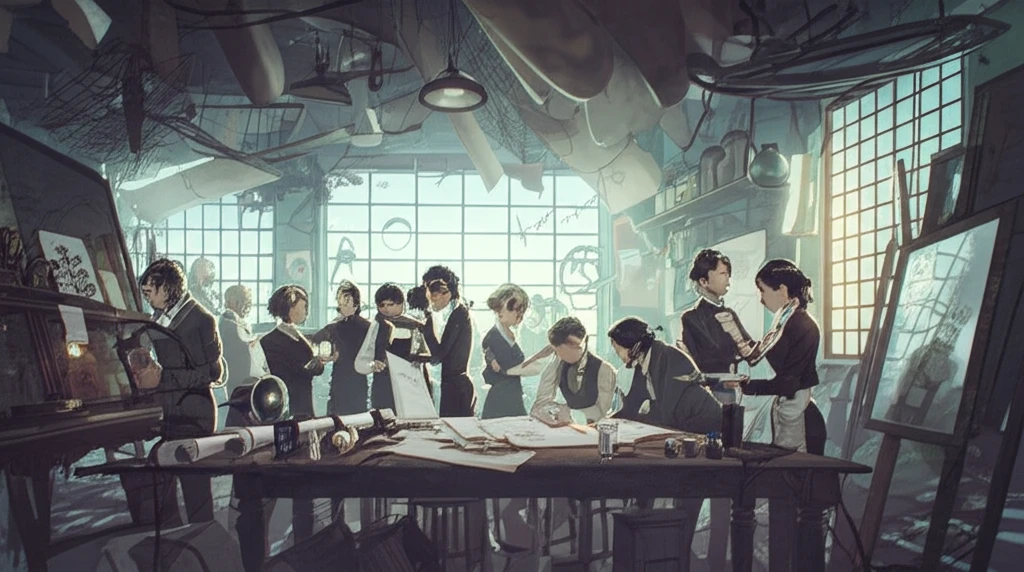
Unlock Your Potential: How 19th-Century Workers Revolutionized Education
"Discover the forgotten story of French artisans and their fight for accessible, skills-based education in the face of industrial change and social inequality. Learn how their vision shaped modern educational ideals."
In the mid-19th century, France was a nation in transformation. The Industrial Revolution was reshaping economies, creating vast wealth for some while leaving many behind. In this era of upheaval, French artisanal workers recognized something profound: education was not just a privilege, but a vital tool for empowerment and social change. Their struggle for accessible and relevant education holds lessons that resonate even today.
Georges Duveau's classic study, La Pensée Ouvrière (1948), delves into this fascinating period, exploring the evolving attitudes of workers toward education and work. Duveau highlights how these workers, particularly skilled artisans, saw education as a means to not only improve their economic standing but also cultivate their intellectual and creative capacities.
This article draws inspiration from Duveau's work, examining the key debates and ideas that shaped the workers' education movement in France. We'll explore how their vision challenged traditional educational models and paved the way for more inclusive and skills-based learning environments.
The Spark of Change: Why Education Became a Battleground

Several factors converged to make education a central issue for 19th-century French workers. The rise of factories and mass production threatened the livelihoods of skilled artisans, who feared being replaced by unskilled laborers. At the same time, a growing gap between the rich and poor fueled a desire for social mobility and a more equitable society.
- Practical Skills: Workers emphasized the importance of vocational training and technical education to prepare them for specific trades and industries.
- Critical Thinking: They sought an education that would encourage independent thought, creativity, and problem-solving skills, rather than rote memorization.
- Social Awareness: Many workers believed that education should promote social justice, equality, and solidarity, empowering them to challenge inequality and advocate for their rights.
- Accessibility: They fought for free, universal education that would be accessible to all, regardless of their social background.
A Legacy of Learning: The Enduring Impact of Workers' Education
The workers' education movement in 19th-century France may seem like a distant historical event, but its legacy continues to shape our understanding of education today. Their emphasis on practical skills, critical thinking, social awareness, and accessibility laid the groundwork for many of the progressive educational reforms of the 20th century and beyond. By recognizing the power of education to transform lives and empower communities, these workers left an indelible mark on the world.
